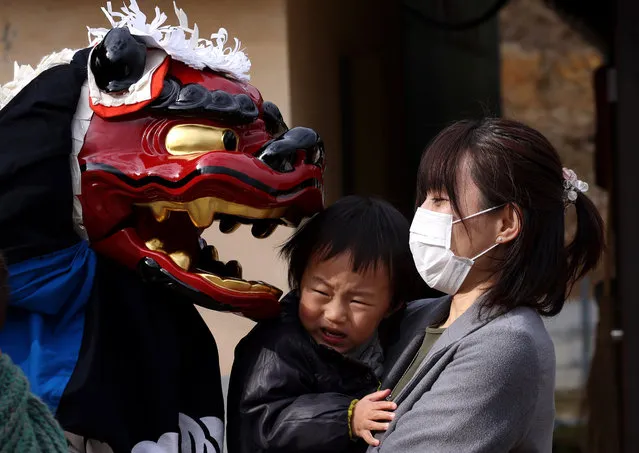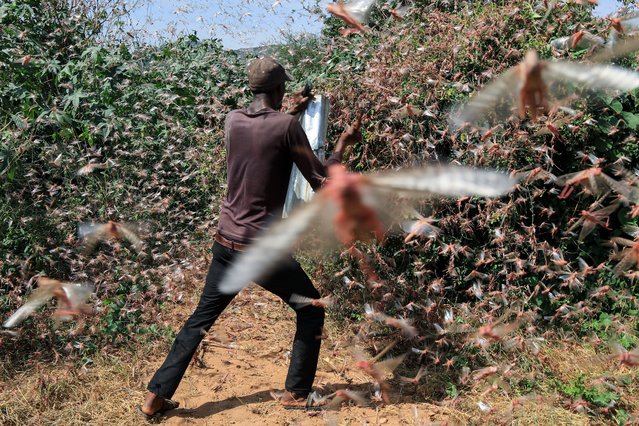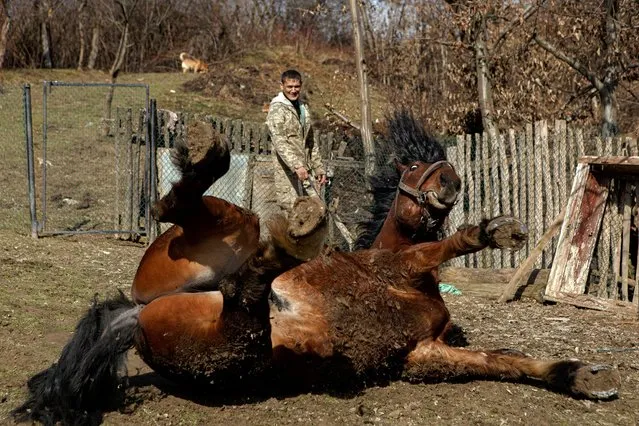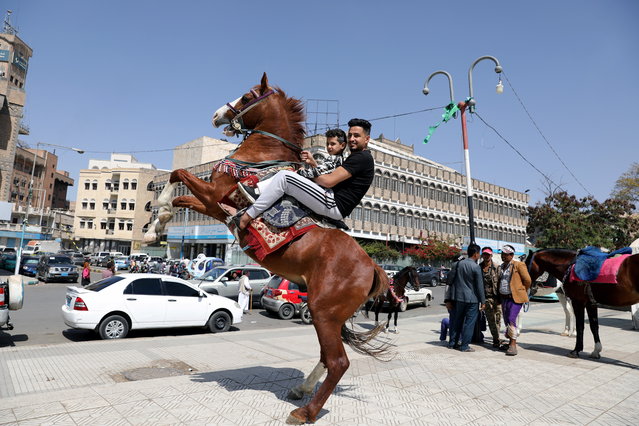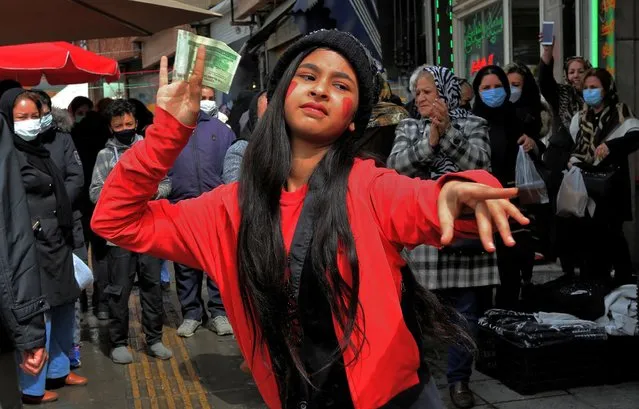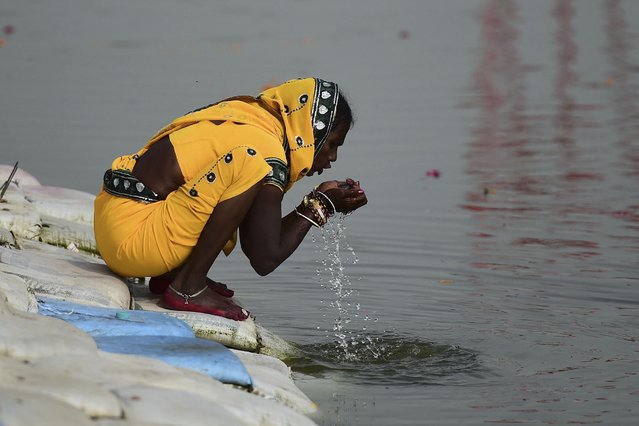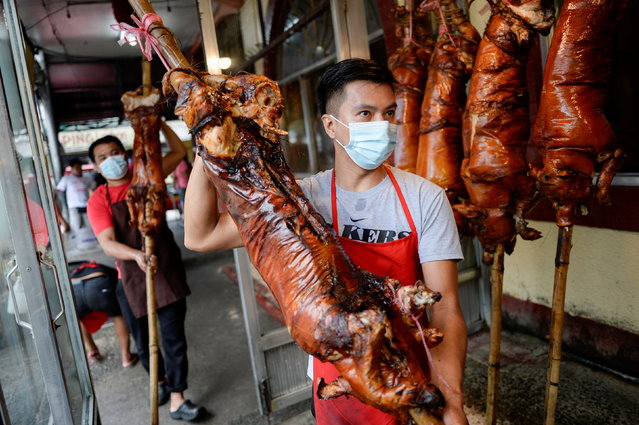
Workers wearing face masks as a protection against the coronavirus disease (COVID-19) carry roasted pigs, locally known as “lechon”, at a restaurant, in Quezon City, Metro Manila, Philippines, December 21, 2020. (Photo by Lisa Marie David/Reuters)
17 Feb 2021 09:41:00,post received
0 comments

